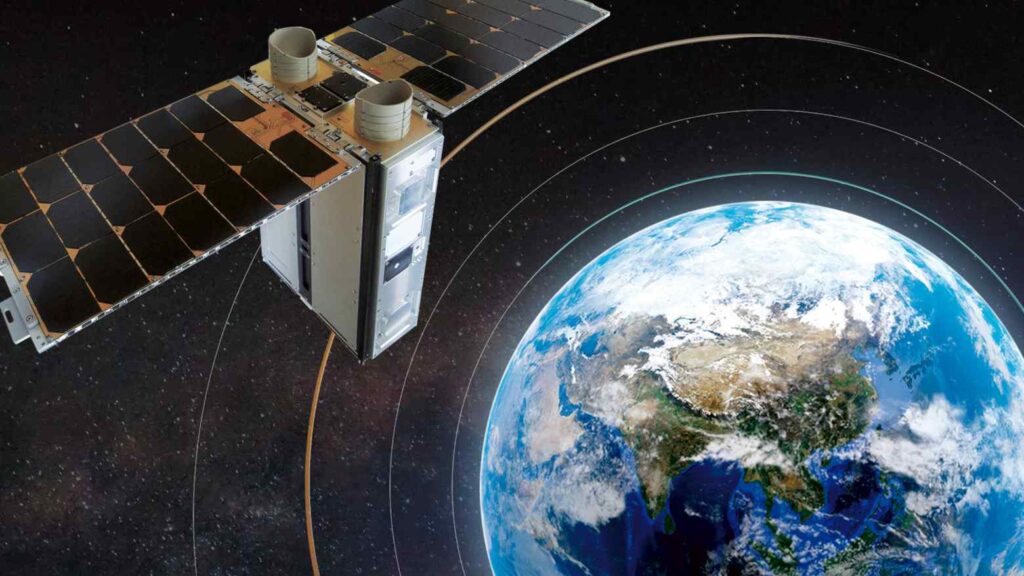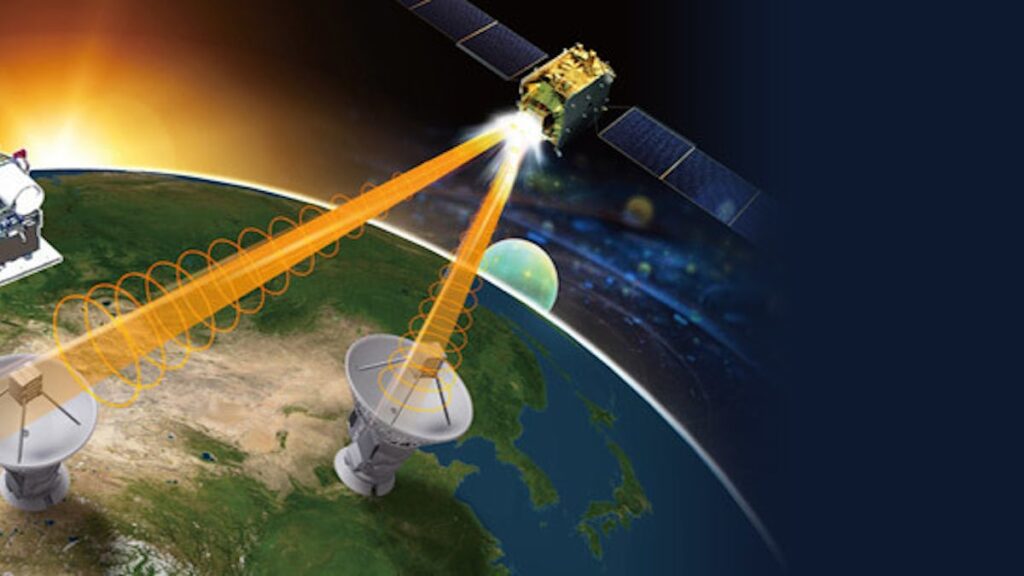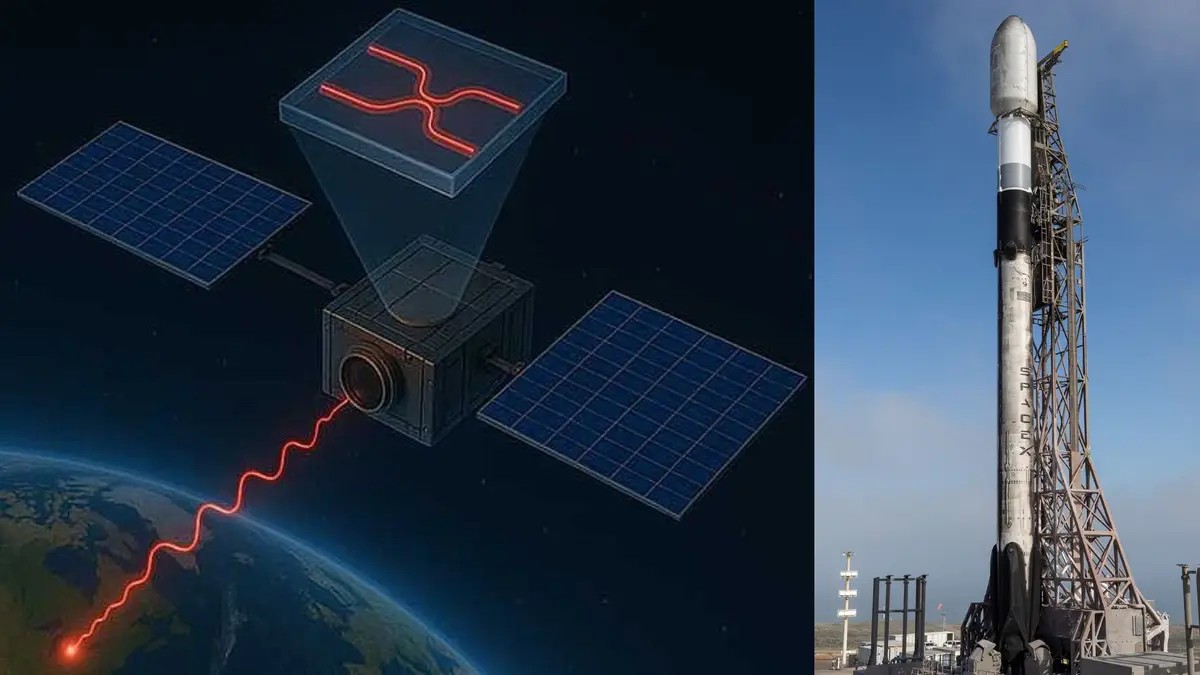In a monumental leap for both quantum technology and space exploration the world’s first quantum satellite computer has been successfully launched aboard a historic SpaceX rideshare mission. This achievement not only marks a technological milestone but also ignites hope for solving some of humanity’s most complex problems from the edges of space.
A Historic Moment: SpaceX Rideshare Redefines Space Accessibility
The recent SpaceX rideshare mission launched from Cape Canaveral, Florida, is being hailed as a turning point in modern space history. This mission carried dozens of small satellites, experimental payloads, and most notably, a quantum satellite computer into low Earth orbit.
The concept of rideshare missions where multiple payloads share a single rocket, has revolutionized space accessibility. It significantly reduces the cost of launching satellites, making space available to a broader range of organizations from governments to private startups. But this mission stands apart because it carried a payload unlike any other the world’s first operational quantum computer in space.

What is a Quantum Satellite Computer?
For decades, quantum computing has been described as the next frontier in technological advancement. Unlike classical computers, which process information in bits (0s and 1s) quantum computers leverage qubits, which can exist in multiple states simultaneously, thanks to the principles of quantum superposition and entanglement.
A quantum satellite computer takes this revolutionary computing power and places it into orbit. But why space? There’s a profound scientific reason behind this bold step.
Why Send a Quantum Computer into Space?
Space offers a uniquely stable environment for quantum experiments. Factors such as minimal gravitational interference, near perfect vacuum and extremely low temperatures make satellites an ideal platform for testing quantum hardware, especially for:
Secure global quantum communication
Testing quantum algorithms in space conditions
Advancing satellite based quantum key distribution (QKD) for unhackable communications
Exploring real time solutions for Earth based challenges like climate modeling, space weather predictions, and complex logistical operations
The quantum satellite computer launched on this mission represents the first time humanity has pushed this boundary beyond the Earth’s atmosphere, turning science fiction into reality.
The Pioneers Behind the Quantum Leap
This groundbreaking satellite was developed by a consortium of global innovators, including PsiQuantum a leading quantum computing firm in collaboration with aerospace partners and national space agencies.
Their CEO, Dr. Jeremy O’Brien expressed his pride and hope at the launch event:
This is not just a technological achievement it’s a human one. Space and quantum computing together offer humanity an entirely new perspective on solving impossible problems. This satellite brings us one step closer to a future where global challenges from disease to climate change can be tackled with unprecedented computational power.

What This Means for Humanity
While the quantum satellite computer launched today is experimental its success opens doors that were previously unimaginable. Consider these potential impacts:
1. Unhackable Global Communication
Quantum key distribution (QKD) relies on the principles of quantum entanglement to transmit data in a way that is theoretically impossible to intercept without detection. A network of quantum satellites could create a secure global communications infrastructure protecting sensitive information for governments, businesses, and individuals alike.
2. Accelerating Scientific Discovery
Quantum computers excel at simulating complex systems from molecules to weather patterns. By operating in space, these computers can assist in real time climate monitoring asteroid trajectory predictions, and even optimizing satellite networks themselves.
3. Strengthening Global Cooperation
The mission represents not just a technological victory but a human one a symbol of international collaboration in pursuit of knowledge. This launch has brought together experts from physics, aerospace, computing, and policy to pursue a common goal advancing human potential beyond Earth’s boundaries.
SpaceX’s Role: Democratizing Access to Space
It’s impossible to overstate SpaceX’s contribution to this moment. Their rideshare program using the reliable Falcon 9 rocket has turned ambitious ideas like this quantum satellite into reality. By drastically reducing launch costs and increasing payload opportunities, they have made space more accessible than ever before for scientific, commercial, and humanitarian purposes.
As Elon Musk, founder of SpaceX, famously said:
“When something is important enough, you do it even if the odds are not in your favor.”
This quantum satellite computer mission proves that even the boldest ideas can be realized when vision meets opportunity.
Looking to the Future: The Quantum Space Race
With this historic launch the quantum space race has officially begun. Experts predict that in the coming decade, we will witness:
The deployment of quantum satellite constellations
Real world quantum-encrypted internet access
Breakthroughs in space based quantum research
Global collaboration between nations and private companies to harness this powerful technology
A Leap for Humanity
The launch of the world’s first quantum satellite computer aboard SpaceX’s rideshare mission is more than a scientific triumph it’s a symbol of human ingenuity, courage, and our relentless quest to push boundaries.
As we look to the stars, it becomes clear the future of quantum computing isn’t confined to Earth. With satellites like these, we are not just exploring space we are expanding the very limits of human potential.




1 thought on “World’s First Quantum Satellite Computer Launched by SpaceX | A New Era of Space & Technology Begins”